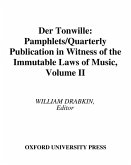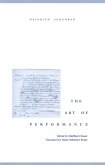The groundbreaking analytical techniques of Heinrich Schenker have had a powerful impact on the English-speaking musical world, and their importance, a century after he embarked on his major projects, is greater than ever. A central work in the Schenkerian canon, Der Tonwille, introduced the use of voice-leading graphs that remains a critical tool for many music theorists today. This volume, the first of a two-volume English translation of Schenker's complete original text, makes these important contributions available to English readers for the first time. In the first five "issues" that make up Der Tonwille, Schenker analyzes piano sonatas by Haydn, Mozart, and Beethoven, as well as shorter works including preludes by Bach and various classical keyboard pieces. The volume also includes the first two installments of a large-scale study of Beethoven's Fifth Symphony which, in common with many of the other essays offered here, is comprised of a detailed analysis of the score, a commentary on the sketches and autograph and related textual problems, remarks on performance, and a critique of the literature on the symphony. Most significantly, the essays in this volume are the first that consistently embrace the concept of "Urlinie" by coordinating an explanatory text with a "graph of the Urlinie" for each work discussed. It also contains the most extensive expression of Schenker's outspoken philosophical, political, and artistic beliefs, providing an important cultural perspective from which to view his theoretical work. Under the leadership of William Drabkin, a team of well-regarded musicologists has produced this skilled and lucid translation of Schenker's influential writings, an essential resource for English-reading musicologists and music theorists.
Dieser Download kann aus rechtlichen Gründen nur mit Rechnungsadresse in A, B, BG, CY, CZ, D, DK, EW, E, FIN, F, GR, HR, H, IRL, I, LT, L, LR, M, NL, PL, P, R, S, SLO, SK ausgeliefert werden.









